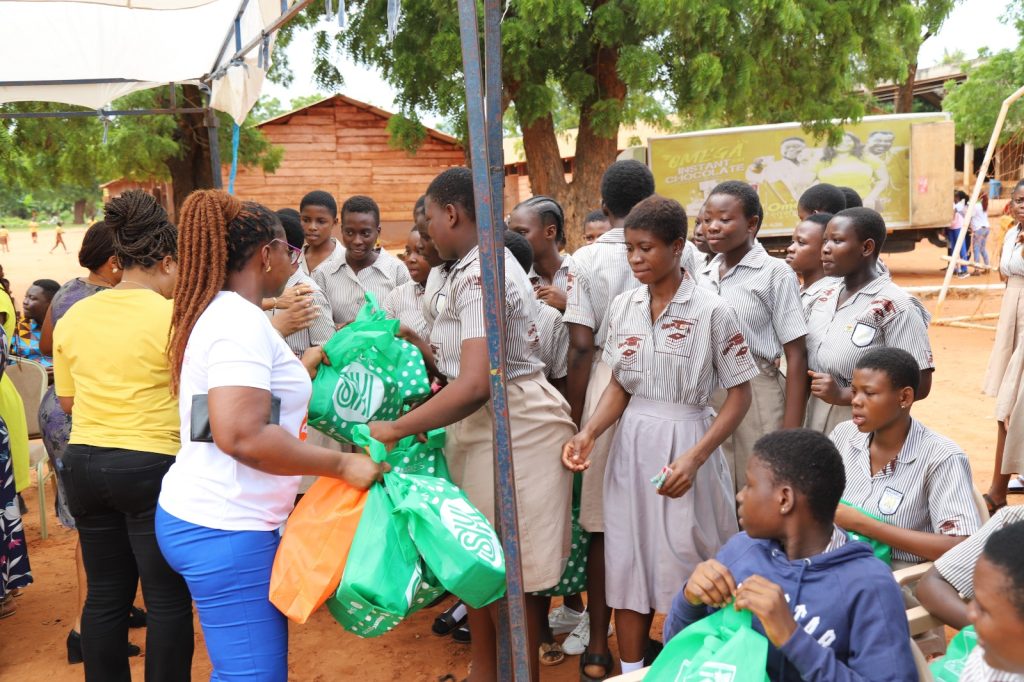Accra, May 29, GNA – The Ghana Chamber of Mines, in collaboration with the Ladies Lead Foundation, has donated sanitary pads to the Anumle Cluster of Schools at Kisseman in Accra to mark this year’s menstrual health hygiene day.
Menstrual Hygiene Day is observed globally and annually on May 28, to break the silence and raise awareness about the importance of good menstrual hygiene management.
A speech read on behalf of Mr Sulemanu Koney, the Chief Executive Officer, Ghana Chamber of Mines, said five months worth of sanitary pads were distributed to over 468 students in the schools.
“Menstrual health is not just a women’s issue; it is a societal issue.
“When girls and women have access to proper menstrual hygiene products, accurate information, and a supportive environment, they are empowered to lead healthier and more productive lives,” he said.
Mr Koney said empowerment extended beyond individual benefits and contributed to the economic and social development of communities and nations.
The Ghana Chamber of Mines, he stated, was committed to supporting initiatives that promote health, education, and well-being in communities.

“We believe that empowering women and girls is essential to achieving sustainable development and economic growth.
“Our collaboration with the Ladies Lead Foundation is a shining example of how partnerships can drive meaningful change,” he said.
He encouraged the students to know that menstruation should never be a source of shame or embarrassment, but a sign of health and vitality.
“You have the right to manage your menstrual health with poise and to seek the support you need. Remember, you are not alone,” he said.
He called on authorities to commit to creating policies and practices that support menstrual hygiene management in schools and communities.
“Let us continue to work together to ensure that no girl or woman is held back because of menstruation,” he said.
Ms Mina Akrubiri, Secretary to the Foundation, underscored the importance of educating adolescent girls on menstrual health hygiene for strict observance.
Menstrual health hygiene, she stated, was crucial to the well-being and empowerment of women and to breaking the silence and stigma surrounding menstruation.
She said the Foundation would continue to champion the causes that affect girls going through menstruation and make them feel at ease and comfortable.
Ms Akrubiri said the Foundation, through its project, had educated young girls about menstrual health hygiene management in Korle Gono and other communities to be bold and not be shy about their menstrual health.
The students were taken through health education on menstrual health hygiene.
GNA